Muscat, Sep 5: At least two people died and three others were missing as rains lashed northern parts of Oman on Friday afternoon.
The provinces of Muscat, Samayil, Amerat, Rustaq, Buraimi, Bahla, Ibri, Yanqul and Dhank were hit by heavy hailstorm which lasted for more than two hours.
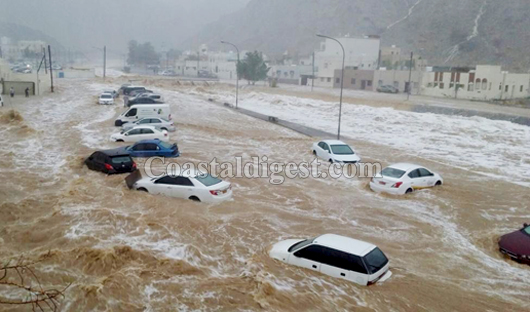
An Omani woman and her housemaid died when their vehicle was swept away by flood waters in wadi Huqain of Rustaq province, according to the Public Authority for Civil Defence and Ambulance (PACDA). The woman’s husband and son are still missing.
Rain in the provinces of Rustq, Dima wa Tayeen and Ibra flooded the nearby wadis and led to the closure of several roads.
The provinces of Bahla and Nizwa witnessed light rainfall.
Several low-lying areas in the provinces of Muscat, Nizwa, Hamra, Suwaiq, Sohar and Saham were flooded.
Another national was reported missing after he was swept away in Mutrah wadi.
In Muscat the flooding caused huge disruptions in traffic and caused hit capital’s roads like Sultan Qaboos road and Muscat Expressway.
Officials said traffic was still paralysed hours after the rain as many streets in the capital were submerged.
Gigantic rocks fell on Bausher Amerat road leading to the closure of the road for hours. Several trees were uprooted by the accompanying strong winds in Muscat.
Damage in properties were reported in Muscat. Flood waters entered houses and swept away vehicles in Hamriyah and Ruwi.
Water also entered some shops and houses in Muscat Grand Mall in Baushar province and Hamriyah area of Mutrah province.
More rain is expected in the northern part of Oman’s Hajar mountain range, according to Oman’s meteorology centre.
The Royal Oman Police (ROP) are advising residents to take precaution during the rains.
Meanwhile, temperatures in Muscat and Seeb were hovering between 30 and 32 degrees Celsius on Friday.
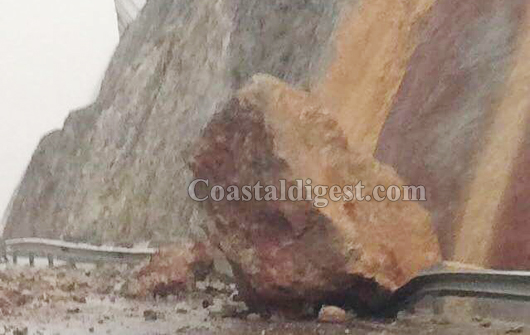


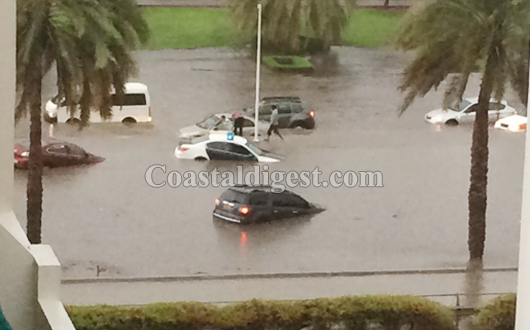
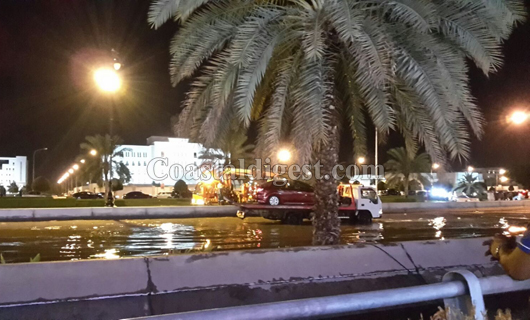
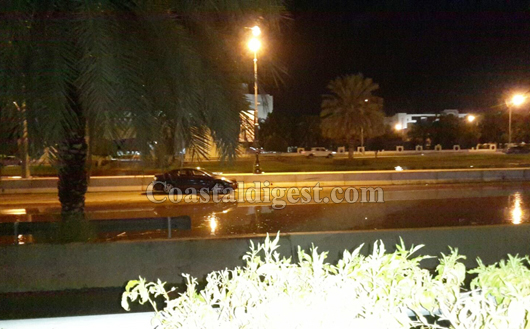
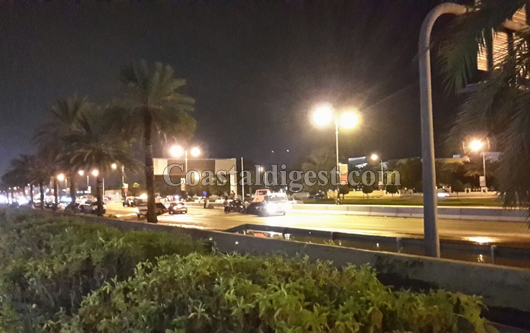
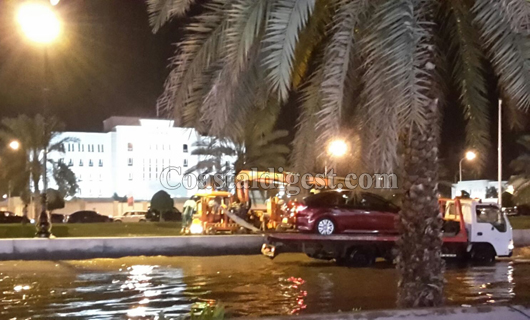





Comments
Add new comment